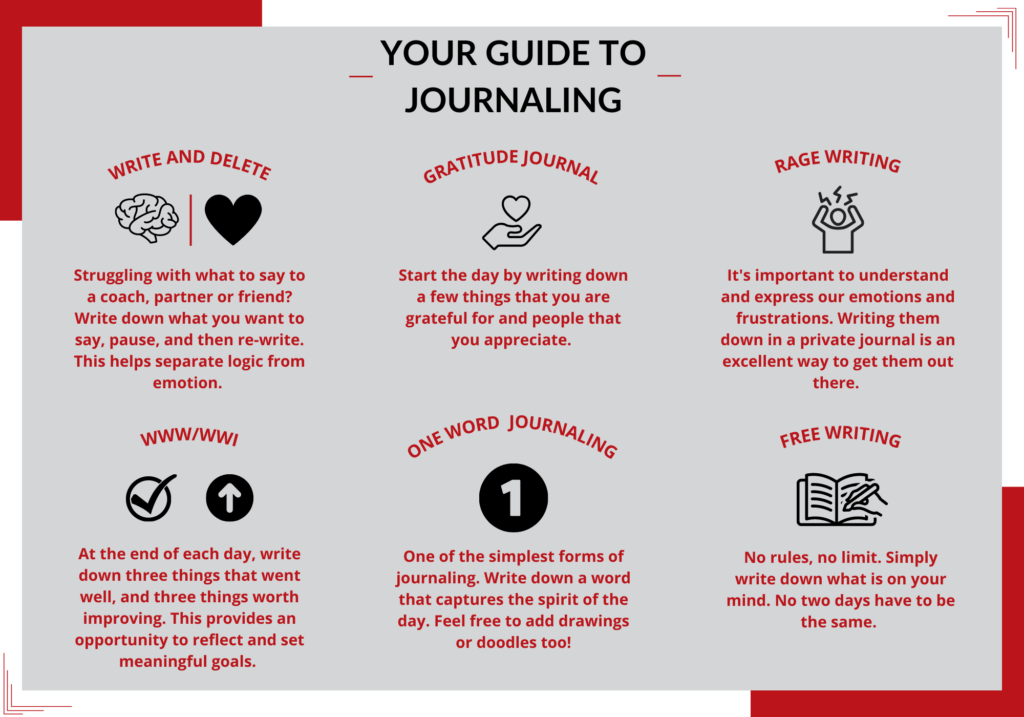Everyone’s mental health journey looks different. It is important to understand that everyone has mental health regardless of what point of their journey they are at. That journey of mental health fluctuates throughout the course of your life. The stressors of everyday life can seem unbearable at times, especially with the mental health crisis at an all time high post-COVID. Taking action to maintain your well-being is essential and the best way to do it is through proactive mental health care.
Here are a few tips to help be proactive with your mental health:
Identify & Acknowledge Your Feelings
The first step to be proactive with your mental health is having self-awareness. Being able to identify how you are feeling and validating your experience allows you to take steps to improve.
Regardless of whether you have a mental health diagnosis or not, all humans experience times when they notice that their mental wellbeing is being pushed. Think of this as your ‘warning track.’
Warning tracks don’t just exist on the baseball or softball diamond; they’re a part of every athletes’ mental experience and having the awareness to know when you’ve hit the warning track and how to respond is key to strong mental wellness.
“Knowing your warning track is important for us to become self aware of the behaviors, thoughts, and attitudes we have when our mental health is struggling,” Premier’s McKenzie Bromback says. “By knowing these symptoms and being able to recognize when they are beginning to show up, we are better able to actively manage them.”
Think about what behaviors, thoughts, and feelings you experience when you’re hitting your warning track.
Move Your Body
Research shows that physical activity and exercise help reduce anxiety and improve your mood. This doesn’t mean you have to do long strenuous physical activity to experience the mental benefits. There are so many ways to stay active. You could get some friends together and play your favorite sport, go for a swim, or a short hike.You can also do small things like taking your dog for a walk, or stretching first thing when you wake up in the morning to boost your mood and make your body feel good!
Regardless of how you do it, be intentional about your physical activity. Set a schedule at the beginning of the week that allocates time toward doing something physical that you enjoy.
Journal
Reflection is a key component of strong mental wellness and one that instills growth; journaling is one of the best ways to get the ball rolling.
Sometimes it can be hard to know where to start when journaling. It is important to find what works for you and be consistent with it. Whether that is a “dear diary” entry, bullet journal, single word, free written, prompted, or even a doodle, it is beneficial to have an outlet for your emotions. Find what allows you to express yourself and run with it.

If you are struggling to start, use the prompts “What Went Well (WWW) and What’s Worth Improving.(WWI)” Write three things that happened throughout that day or week that went well for you and made you happy. Then, write what you think you could have done better that would increase your well-being. These could be things like going to sleep at the same time every night or talking to yourself in a more positive way, etc.
Remember, there is no right or wrong way to journal. Simply being intentional about the act of it is a step in the right direction and will open the door to a positive lifelong habit.
Practicing Gratitude
Something like…In a fast-paced and stressful world, getting wound up in negativity can be a harsh yet realistic reality for many. Insert gratitude.
“Practicing gratitude helps improve mood, relationships, and increases optimism.,” Premier’s Nate Penz says.
There are so many benefits to identifying things that you are grateful for. Gratitude is a great way to start your day. Think of a few things that you are grateful for and write them down in a personal journal. This could be anything from good health, the weather, your family/friends or the ability to play the sport you love.
Cultivating a lens of gratitude can also be a great tool when approaching your next game or competition. “Using your gratitude lens can be done by building in time before an event (game, test, presentation, family gathering, whatever it may be) on a regular basis to determine what you are looking forward to about this challenge,” Premier’s Dr. Matt Mikesell says. “It’s difficult to have fear, anxiety, worry, and stress. be in the driver’s seat if gratitude, and excitement are intentionally placed in the driver’s seat.”
Get Plenty of Restful Sleep
It is well known that sleep is an essential part of overall well-being. Getting 8 hours of sleep a night is important, but it is also important to have a consistent sleep schedule. This means trying to go to bed at the same time even on the weekends.
Use these guidelines when thinking about sleep.

Your journey to strong mental health and wellness isn’t linear. There will be some days that are better than others and days where practicing proactive mental health care will be difficult. Remember to identify and lean on your support system and that all humans are going through something.
